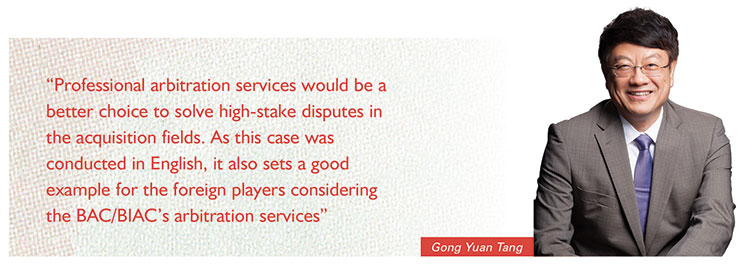Taiwan Revises Rules for Hearings on Patent Invalidation Cases
The Taiwan Intellectual Property Office has introduced new “Guidelines for Hearings on Patent Invalidation Cases” in order to improve the quality of the hearing process. Some of the most significant revisions are as follows:
- More regulations have been added to the pre-hearing preparation stage. As well as the existing rules governing conducting the hearing and admissibility of documents and evidence, the amendment now adds regulations pertaining to organization and simplification of the disputed issues, clarifies the post-grant amendments of disputed patents, and specifies procedures for agreement on key points of defense and offense during the hearing process.
- Besides being responsible for examining the patent invalidation case, the presiding officer for the hearing will now be allowed to share thoughts on factual, legal and evidential disputes in order to render the process more transparent.
- Hearings can now be conducted via video conferencing, enabling participants to join from office or home. This will also make it easier for international participants to join which is the common global trend.
- In the case when a party is absent from the proceedings, the examiner will still be able to hold a “one-party hearing”. However, the hearing should be rescheduled if the absent party did not receive proper notification of the hearing, or the attending party cannot provide necessary evidence for matters to be investigated by the examiner, or the matter presented by the attending party was not provided to the other party within a reasonable length of time.
- The summary of the hearing shall be recorded and supplemented with audio or video recordings to simplify the content.
Computex Meeting in June Underlines Taiwan’s Importance in the Tech Ecosystem
Tainan-born CEO of U.S.-based Advanced Micro Devices, Lisa Su, reminded global tech leaders of how central Taiwan was to the development of computer technology historically, and also heading into the future with AI. According to Ms. Su, artificial intelligence (AI) is the most important technology of the last 30 years. Taiwanese supply chain partners like Taiwan Semiconductor Manufacturing Co. (TSMC) will continue to be crucial as a chip manufacturer that will be needed for AI applications in the fields of healthcare, automotive capability and scientific research. Ms. Su mentioned TSMC’s research and development of CoWoS as a recent example of its strength in advanced computing and packaging. CoWoS is a 3D packaging technology launched by TSMC that enables the integration of multiple dies and memory cubes into a single package. It therefore can support the continuation of Moore’s Law by allowing more transistors to work together. Moore’s law is the observation made by Gordon Moore that the number of transistors in an integrated circuit (IC) doubles roughly every two years. It is expected that Tainan will be hosting more tech businesses in the future – a natural byproduct of the uptick in tech patents produced in Taiwan.
China Continues Patent Subsidies
Although China has declared that patent subsidies will come to an end in 2025, many local jurisdictions are still issuing substantive patent subsidies and rewards for both domestic and foreign patent grants. According to a 2021 USPTO report, China has reportedly adopted more than 70 trademark subsidy measures, including measures for domestic and foreign applications and registrations. For example the Implementation Rules for the Management of Special Funds for Intellectual Property Rights in Haining City state that patentees will receive an award of 100,000 RMB for every 10 granted Chinese invention patents. For each foreign patent granted through the Patent Cooperation Treaty, patentees will receive 30,000 RMB in subsidies. Even if China ends these kinds of subsidies in 2025, China will still be able to use other incentives such as lower corporate income tax rates amongst other means.
Interim Provisions on Anti-Unfair Competition on the Internet Issued by China’s State Administration for Market Regulation
China’s State Administration for Market Regulation (SAMR) announced the Interim Provisions on Anti-Unfair Competition (AUCL) on the Internet on May 6, 2024. The new provisions clarify how the AUCL applies to the internet, covering such aspects as data scraping (that has implications for collecting training data for AI), fabricated reviews, and also intellectual property issues. Article 6 states that platform operators shall strengthen the standardized management of competition within the platform. If an operator on the platform is found to have adopted unfair competition methods, illegally sold goods or provided services, or infringed upon the legitimate rights and interests of consumers, necessary measures shall be taken. Article 7 states that operators shall not use the internet to carry out confusing behaviors, leading people to think that they own the rights to other people’s services or goods, such as the following:
- Unauthorized use of logos that are identical or similar to the main part of domain names, website names, and web pages.
- Unauthorized use of other people’s product names, business names (including abbreviations, trade names etc.), social organization names, names (including pen names, stage names, and translated names) that have an influence as the main part of domain names and other online business activities.
- Unauthorized use of logos that are identical or similar to the page design, name, icon, shape etc. of application software, online stores, clients, mini programs, public accounts, game interfaces etc. that have a certain influence on others.
- Unauthorized use of other people’s network abbreviations, network symbols, and other identifiers that have a certain influence.
- Producing and selling goods that can lead people to mistake them for others or have a specific connection with others.
- Conduct confusing behaviors with other operators by providing online business premises and other convenient conditions.

















